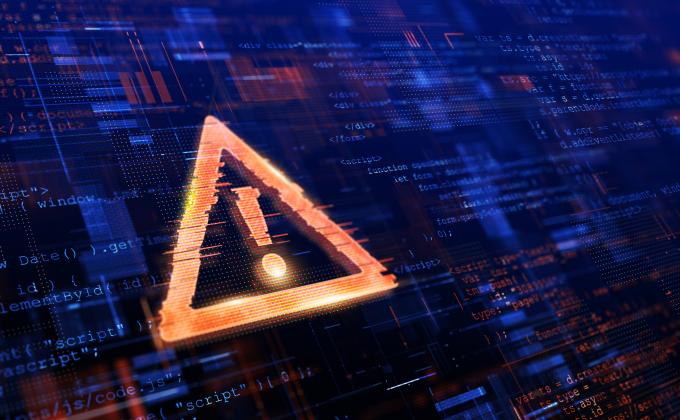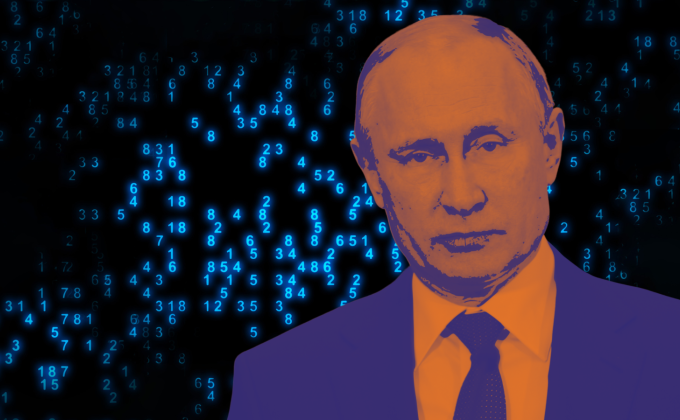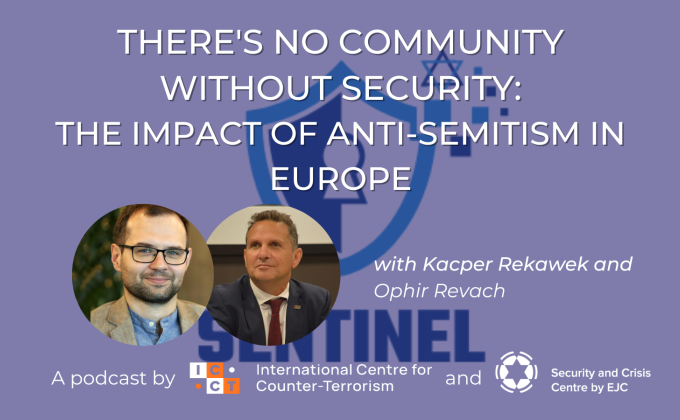Introduction
On 22 April, India was shocked by a deadly terrorist attack at a tourist spot on a scenic meadow near the hill station of Pahalgam. The attack reportedly targeted Hindu tourists as they were allegedly asked to recite the Quran. This attack, which resulted in 26 deaths, was supposedly carried out by a relatively unknown terrorist group in the Kashmir region called The Resistance Front (TRF).
The international community condemned the terrorist attack and the UN underlined ‘the need to hold perpetrators, organizers, financiers and sponsors of this reprehensible act of terrorism accountable and bring them to justice’. Two weeks later, India struck back with a military operation leading to an escalation of violence between the two rivals, India and Pakistan. Although a fragile ceasefire has been reached, the hardened stance of New Delhi may mark a turning point in India's approach to countering terrorism.
While providing some context on the status of Kashmir, this analysis will shed some light on the alleged perpetrators, both countries’ responses, and the counter terrorism measures that could be taken.
The status of Kashmir
Kashmir - also known as the Switzerland of Asia - was once a princely state and has always been a central point of contention between India and Pakistan since partition. The Kashmiri population is religiously and culturally very diverse, consisting of Muslims, Hindus, and Buddhists. During partition, the princely states were given the choice to either join India or Pakistan. At the end of British rule, the Hindu ruler of Kashmir - Maharaja Hari Singh – despite a majority of Muslims living in the Kashmir valley, opted to join India in exchange for military support against attacks by invading tribesmen from Pakistan. After three wars, the 1972 Shimla Agreement divided Kashmir into two separately administered regions and established the Line of Control that still applies today and determines that any dispute should be settled bilaterally without any third-party intervention.
India-administered Kashmir (IaJK) consists of the Kashmir Valley, Jammu, and Ladakh. Pakistan-administered Kashmir consists of Azad Jammu, and Kashmir, and Gilgit-Baltistan. A third, much smaller portion at the north-east of Kashmir - Shaksgam Valley and Aksai Chin, is controlled by China but claimed by India. In particular, Aksai Chin is of strategic relevance to China as it connects Tibet and the western region of Xinjiang.
In August 2019, India revoked Article 370 of the Indian Constitution that granted India-administered Kashmir special autonomy. This provision was intended to be temporary and allowed Jammu and Kashmir more governance in areas like education, health, and property, but to adopt their own constitution and raise their own flag. With the revocation of the special status of Kashmir, the region was placed under the direct control of Delhi, as this would improve prosperity and security in the region. To avoid any unrest, the government shutdown the internet for months and severely curtailed access to information. The Supreme Court of India considered that access to the internet forms an integral part of the freedom of expression and ruled that the shutdown - which had already lasted over 150 days - because it cannot be indefinite and needs to be necessary and proportionate. Several of the reforms, including the abolition of Article 35A of the Indian Constitution, were intended to allow non-Kashmiris to settle down in the region. Nearly 85,000 resident permits have reportedly been issued to non-locals in the last two years, causing a growing resentment amongst Kashmiri Muslims. Another reason for this resentment is the government-led resettlement of Kashmiri Hindus - also known as Kashmiri Pandits - according to one estimate, 40,000 families fled due to armed militants in the 1990s. After six years, elections were held in 2024 in India-administered Kashmir. While the elections were relatively peaceful, the newly elected local government headed by Omar Abdullah has, in reality, very limited powers.
Although Pakistan-administered Kashmir is legally autonomous, it is controlled by the government in Islamabad. Media outlets need permission from the Pakistan Minister for Kashmiri Affairs to operate in Pakistan-administered Kashmir and are strictly forbidden to promote the independence of the region. Several terrorist groups have and continue to operate from Pakistan. Just days before the Pahalgam attack, the commander of the Lashkar-e-Taiba (LeT), a UN designated terrorist organisation, called for jihad in Kashmir from a town in Pakistan-administered Kashmir.
Human rights violations are being committed on both sides of the Line of Control. In both Indian- and Pakistan-administered Kashmir, in particular, anti-terrorism laws are being misused and continue to marginalise minorities and stifle political dissent. The rights to freedom of speech, freedom of association, and religion are being severely restricted, and minorities are systematically discriminated without any form of accountability. The lack of autonomy further fuels local grievances. Like human rights, the media outlets are often being weaponised by both India and Pakistan to shape the narrative for domestic consumption, but also to influence international perceptions. While freedom of press was already declining in both countries before the Pahalgam attack, media are further being curtailed since, with websites being blocked or instrumentalised to portray a certain image. In the aftermath of the attacks, India blocked over 8,000 social media accounts in the interest of national security, but this also includes blocking accounts of political dissent.
Who is The Resistance Front (TRF)?
TRF is considered to be a proxy of Pakistan-based terrorist group Lashkar-e-Taiba (LeT) and has been designated by India under the Unlawful Activities (Prevention) Act (UAPA) in January 2023. India claims that TRF was involved in the recruitment of fighters and smuggling of weapons from Pakistan into India-administered Kashmir. TRF and several other splinter groups, such as the Kashmir Tigers, the People’s Anti-Fascist Front, and the United Liberation Front of Kashmir, emerged in the aftermath of the revocation of Jammu and Kashmir's special status in 2019. TRF has violently opposed the resettlement plan of the Kashmiri pandits - perceived as a measure to change the demography of the region. TRF has been responsible for a wave of targeted killings of Kashmiri pandits, including two school teachers in October 2021.
TRF initially claimed the Pahalgam attack on Telegram, reportedly stating that “violence will be directed toward those attempting to settle illegally.” A few days later, TRF retracted the claim and denied responsibility for the attack, indicating the claim was the result of a coordinated cyber intrusion. Considering the outrage by Kashmiris and international condemnation, TRF could have been pressured by Pakistan to deny the attack. Research also indicates that terrorist groups are more likely to claim responsibility when the attack targets the military and not civilians. The previous big attack in Kashmir dates back to 2019, when a suicide attack killed 40 Indian military in Pulwama. This attack was claimed by Jaish-e-Mohammed (JeM), a UN designated terrorist group operating from Pakistan.
Operation Sindoor and escalating violence
India has been trying to 'normalise' India-administered Kashmir by promoting tourism and prosperity. However, room for political dissent remains tightly controlled, and militancy has been rising underneath the surface. The question is whether the portrayal of peacefulness has also led to underestimating security risks in Kashmir. The Pahalgam attack exposed the possible failure of the Indian intelligence to anticipate the incident. At the same time, the government was under a lot of pressure from the public to respond to the terrorist attacks, which were specifically targeting Hindu tourists.
In response to the attack, India suspended the Indus Water Treaty that distributes the water between India and Pakistan - which was perceived as an ‘act of war’ by Pakistan - and in return suspended the Shimla Agreement. On 9 May, India launched Operation Sindoor, named after the red vermilion often used in Hindu ceremonies and worn by married Hindu women. India carried out air strikes across the border against sites that have been used by LeT, JeM and Hizbul Mujahideen, allegedly killing a hundred terrorists. The Indian army was apparently given carte blanche to target terrorists across the borders.
While Operation Sindoor was intended to deter Pakistan and deemed non-escalatory, in the days that followed, both countries carried out strikes at military bases across the border. Pakistan claims over 40 civilians have died in these strikes and in response, downed five Indian air jets. In the days that followed, air strikes continued, Pakistan retaliating and carrying out air strikes not only in Kashmir but also in Punjab and Rajasthan. Considering that both countries possess nuclear weapons, the need to de-escalate tensions is crucial. While India has a nuclear doctrine in place, which includes a ‘no first use’ policy, it appears that Pakistan does not have a formal nuclear policy, providing more flexibility to use nuclear weapons.
Both countries have been on the brink of war before and are aware of the risks. The ceasefire that President Trump claimed to have brokered - which has firmly been denied by India - is fragile and without any clear conditions. Pakistan has internationalised the Kashmir issue, like before in 2019 when India revoked the special status of Kashmir, an approach which India has always strongly opposed, reaffirming that the Kashmir dispute should be resolved bilaterally as stated in the Shimla agreement. Just two days after the ceasefire, Prime Minister Modi announced that any future terrorist attack would be met with a strong response, implying that further military strikes will follow and that the country had merely paused its military action. This can be perceived as a clear invitation for one of the Kashmiri terrorist groups to carry out an attack.
Even with a ceasefire in place, the long-term implications should not be underestimated. Firstly, the fact that the terrorist attack is targeting civilians is deeply concerning. Equally alarming is the fact that, for the first time in years, both nations carried out strikes deep into each other’s territory. This normalisation of cross-border retaliation sets a dangerous precedent. The military rule in Pakistan and its continued territorial revisionist approach, combined with India’s majoritarian nationalism based on Hindutva (Hinduness) and Hindu Rashtra (Hindu nation), are a toxic mix that could lead to an escalation of the conflict. Furthermore, the response of India to the terrorist attack is being used by Al-Qaeda in the Indian Subcontinent (AQIS) to call for jihad against India. While AQIS does not pose a significant threat to India, the impact on radicalisation within India of the online propaganda should be taken seriously. Against this background, the international community should also reflect on their role and how they can contribute to prevent future escalation through diplomacy, but also through military support and strategic partnerships.
Addressing terrorism and underlying grievances
Clearly, in the short term, India should investigate and prosecute those who were involved in the Pahalgam terrorist attacks. In the aftermath of the hostilities, six alleged terrorists were shot during a counter-insurgency operation, including a commander of LeT engaged in recruitment activities. While a courtroom can be used by the accused as a forum to portray themselves as victims or disseminate propaganda, it is also an opportunity for the prosecutor to dispel such narratives, bring justice to the victims, and demonstrate that terrorism can be addressed through a fair trial by an independent court established by law. In addition, India should also look at why the intelligence services failed to detect the terrorist attack. Investing in inter-agency coordination and improving detection capabilities is crucial. It should, however, not lead to overly broad surveillance that violates human rights, in particular of minorities. India’s digital surveillance structure is expanding rapidly and has already been criticised for encroaching on the right to privacy and for its lack of independent oversight. Investing more in understanding the regional differences in radicalisation between and within the communities in Kashmir, Jammu, and Ladakh is needed to tailor longer-term interventions that effectively deal with the underlying grievances.
Pakistan has a history of supporting terrorist groups, its denial of any involvement in the terrorist attack is met with some scepticism. Pakistan had ‘allowed’ Osama Bin Laden to reside in the country and provided support - including weapons - to the Taliban and Haqqani network in Afghanistan. Both LeT and JeM are designated by the UN as terrorist groups and have their base in Pakistan. The leader of JeM - although arrested twice - has not been charged and is believed to be free. However, the founder of LeT - which is responsible for the Mumbai attack - has been convicted of financing terrorism and is serving a sentence of 31 years. Despite the numerous terrorist groups that have been operating from Pakistan, the FATF believed that the country has made significant progress and removed it from its grey list - a list of countries placed under increased monitoring due to higher risks of financing terrorism. After the recent terrorist attack in Kashmir, several politicians, including former Minister of Foreign Affairs Bilawal Bhutto in Pakistan, also alluded to the fact that Pakistan indeed had ties with terrorist groups. Pakistan - currently a member of the UN Security Council and backed by China - should nevertheless see to it that it does not lend any support to terrorist groups and provides full cooperation in bringing those responsible for the terrorist attack in Kashmir. India has recently expressed their concerns that the Netherlands is supplying weapons to Pakistan as it supports terrorism. Furthermore, India is now actively lobbying to get Pakistan listed again by the FATF, although it would need to support this with credible and robust evidence. Sanctions and becoming listed against by the FATF would cripple the already weak economy of Pakistan.
Conclusions
For seven decades, the conflict in Kashmir has been lingering on, and every terrorist attack is being met with a familiar cycle of kinetic response, diplomatic friction and manoeuvring.
While both countries are claiming victory and are lobbying support for their narrative internationally, military leadership in Pakistan and Prime Minister Modi in India have seemingly boosted their image domestically. Yet, as the rhetoric is becoming more assertive and more hostile - often amplified by the media - there is a genuine risk of renewed hostilities with both countries willing to move up the escalation ladder.
A durable solution in reducing terrorist threats can only be achieved - in addition to security-related measures - by addressing underlying grievances, human rights violations and governance deficits in both parts of Kashmir. If the last two decades of countering terrorism and the War on Terror have taught us anything, it is that hard security responses alone will not reduce terrorist threats in the long term. Preventing terrorism requires a combination of hard and soft measures that focus on both the short and long term. Both countries are members of the Global Counter Terrorism Forum and contributed actively to various best practices and tools that have been developed to deal with terrorism that focus on reducing radicalisation and recruitment to terrorism through community policing, investing in education and rehabilitation programmes. India and Pakistan know the local context and should avail the broad set of measures available to address terrorism.
This article represents the views of the author(s) solely. ICCT is an independent foundation, and takes no institutional positions on matters of policy unless clearly stated otherwise.








